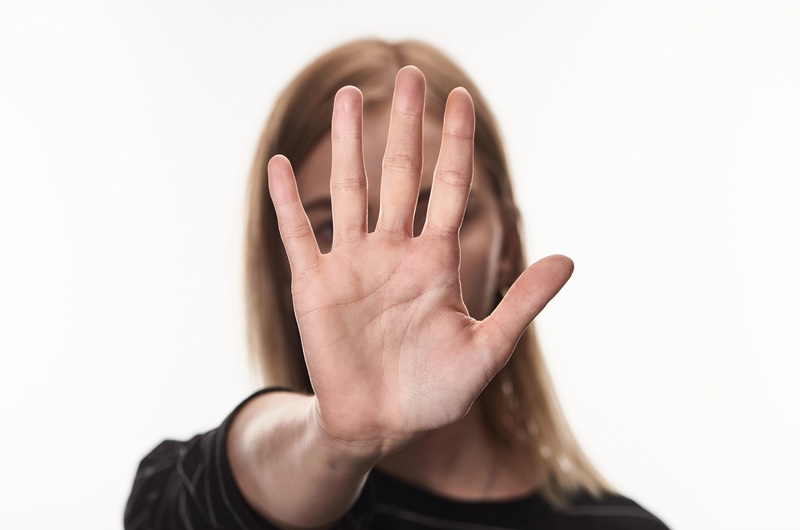How Long Do I Have To Apply For VAWA?
”El Show Sin Fronteras”
Spanish Video Above Translated In English Below
Domestic Violence In Immigrants Living In The U.S.
Domestic violence is a painful reality that affects many people, and can be physical, economic or psychological.
Usually, the victims of this violence do not realize what they are experiencing until it is too late.
That is why in the United States there is the VAWA program, a law that offers an immigration route for victims of domestic violence.
However, it is important to know how much time you have to apply for this immigration status and what are the necessary requirements.
Why Don’t Some People Apply For VAWA?
Many people don’t apply for VAWA because they are afraid of affecting the person who is committing the agression, which may be a result of love or fear of consequences for the offender.
It is important to note that the process is completely confidential and protects the privacy of the people involved.
Lincoln-Goldfinch Law – Abogados de Inmigración Firm takes clients’ privacy very seriously and every detail is taken care of to ensure their safety.
What Services & Codes Does Lincoln-Goldfinch Law – Abogados de Inmigración Provide?

Lincoln-Goldfinch Law – Abogados de Inmigración Firm’s mission is to bring peace of mind and a fresh start to its clients and their loved ones.
To achieve this, it’s important that customers do not have to worry about whether the information provided to the firm will reach their offender.
For this reason, a careful and detailed case strategy is undertaken to ensure that the evidence needed for the case is presented in a safe and effective manner.
The case strategy will include a detailed review of the evidence that will be used to support the client’s case. This evidence may include marriage certificates, testimonies, photos, videos, messages of pain or threats received by the client.
The firm will work with its immigration legal guardians to determine the best way to present evidence. The firm also recognizes that each case is unique and, therefore, there is no one-size-fits-all strategy.
However, if a client is already married to a U.S. citizen or resident, has a child who is now a U.S. citizen and over the age of 21, or is the child or stepchild of a person who is a U.S. citizen or resident and under the age of 21, he or she may contact Lincoln-Goldfinch Law – Abogados de Inmigración Firm to discuss the immigration options available.
Evidence For VAWA
Lincoln-Goldfinch Law – Abogados de Inmigración Firm has extensive experience in helping clients gather the evidence necessary to comply with immigration requirements in VAWA (Violence Against Women Act) cases.
Their team is highly skilled and creative in the search for evidence, and works closely with clients to understand their story and determine which documents can be used as evidence.
The Lincoln-Goldfinch Law – Abogados de Inmigración Firm team suggests documents such as receipts, photographs, videos, text messages, police reports, medical records and witness testimony.
Lincoln-Goldfinch Law – Abogados de Inmigración Firm also ensures that clients do not have to worry about evidence, as the team is there to help them find the evidence needed for their case.
The team takes the time to talk with the client and determine what documents are needed for the case, allowing clients to focus on finding the best way out of the situation they are in.
It is important to note that the Lincoln-Goldfinch Law – Abogados de Inmigración Firm team also works with immigrant men living in domestic violence situations.
At times, men may feel uncomfortable talking about their situation because of the stigma surrounding men who experience violence. However, at Lincoln-Goldfinch Law – Abogados de Inmigración Firm they make sure to provide support and advice to all their clients regardless of their gender.
Can Men Apply For VAWA Protection?
Yes, men can apply for protection under the Violence Against Women Act (VAWA) program despite the taboo and shame associated with being a man who suffers violence.
The process is 100 percent confidential, and friends and family will not find out unless the client tells.
Moreover, once the aggressor becomes a citizen, there is nothing to fear. The goal of the team of immigration attorneys is to help clients achieve success and obtain their papers through VAWA.
It’s important to keep in mind that domestic violence is not limited to women as victims and men as aggressors.
Men can also be victims of domestic violence and have the right to seek help and protection under the Violence Against Women Act (VAWA) in the United States.
It is understandable that men may feel embarrassed or afraid to seek help due to gender stereotypes and lack of awareness about domestic violence against men.
It is essential to remember that VAWA services are confidential and that men can also receive help without fear of reprisal or prosecution.
To help men recognize if they are being victims of domestic violence, it is important to have open and honest conversations with them and ask them questions about their family situation.
In this way, the necessary information and assistance can be provided to get out of situations of domestic violence.
Don’t Be Afraid To Ask For VAWA If Your Children Abuse You

People should not be afraid to talk about the abuse they suffer, even if it is at the hands of their children.
Sometimes, parents feel embarrassed and do not report the situation, but it is crucial to act in time to obtain VAWA benefits and not miss the opportunity.
Many parents depend on their children in a new and unfamiliar country, and this can make them more vulnerable to violence.
It is common for children to take advantage of the situation and abuse the power they have over their parents, so it is important to be vigilant and take action if necessary.
People should seek to feel comfortable talking about their problems and seek help if necessary.
Check Points & The Manipulation Of Children
Children who are citizens or have residency may also cause problems at checkpoints.
In this type of case, the child often takes advantage of his or her undocumented parents’ situation to break the rules and disappear without consequences.
This is a common situation that occurs in many immigrant families and can have an emotional and financial impact on parents.
It is essential to be alert and take measures to prevent children from abusing the status of their undocumented parents.
Don’t Be Afraid To Talk To The Police
It is vital that immigrants not be afraid to involve the police in domestic violence situations.
Many fear that in doing so they may be deported, especially if the aggressor is a U.S. citizen and the victim is undocumented.
It is critical that if you are a victim of crime or domestic violence, you do not remain silent and call the police for help.
You are in no danger when you are a victim and report the situation to the authorities. The officers will not approach you to verify whether you have papers or not, but to give you the help you need at that moment.
Violence Statistics
In the United States, more than 10 million people have experienced intimate partner violence, and an estimated 5 percent to 22 percent of families experience child or parent abuse.
A study by the Department of Justice in 2008 found that one in 12 offenders reported to police are minors, and half of them are the cause of violence against the mother.
In addition, one in five marriages in the United States is composed of a husband or wife born outside the country, and 40 percent of them come from a Latin American or Caribbean country.
Domestic violence affects 10 million people in the United States each year, and one in four women is a victim of domestic abuse.
One in three women and one in four men in the United States have experienced some form of physical violence by an intimate partner.
In one study, 48 percent of Hispanic immigrant women reported that intimate partner violence against them had increased since they immigrated to the United States.
During the COVID-19 pandemic, there was an increase in domestic violence by both male and female residents.
If you qualify for VAWA and do not want to report it to the police, that is okay, but it is important to start your VAWA as soon as possible after the violence occurs.
We all deserve to live free and in peace, so don’t be afraid and seek help.
If you have additional questions about processing times, VAWA, or your specific case, you may contact us at (855) 502-0555. After a brief 10-minute evaluation of your case over the phone, we will let you know what options you have. You can also follow us on our social networks so you don’t miss our weekly broadcasts on Facebook, YouTube and Twitch.
Frequently Asked Questions About VAWA Times
Contact A U.S. Immigration Attorney Today!
Categories
How To Find Us
What Our Clients Say
“This Lawfirm is great, very professional and helpful. I love that they are always in communication and always available for when you have questions . 100% recommended by me and my family. Thank you Lincoln-Goldfinch Law – Abogados de Inmigración”





